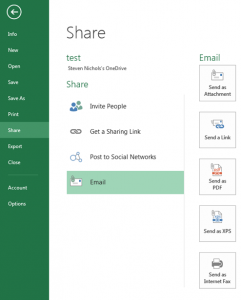
Behavioral interviewing techniques have become a key strategy for organizations looking to improve their hiring outcomes by identifying top talent across industries. This method shifts the focus from hypothetical situations to past behaviors, offering insight into a candidate’s ability to handle real-world challenges. Through well-structured questions and a strategic evaluation process, behavioral interviewing enhances the overall hiring process and reduces guesswork.
Why Behavioral Interviewing Matters
Unlike traditional interviews, which often involve hypothetical questions, behavioral interviews ask candidates to describe how they have handled specific situations in the past. This method allows hiring managers to assess how candidates’ experiences align with the competencies required for the role. By focusing on real-world scenarios, companies can more accurately predict how candidates will perform in similar situations within the organization.
Behavioral interviews are particularly effective for assessing critical competencies, such as:
- Leadership
- Problem-solving
- Team collaboration
- Adaptability
Through these insights, organizations can ensure they are selecting the right candidates who are not only skilled but also a strong fit for the company’s culture.
Steps for Implementing Behavioral Interviewing
Identify Core Competencies
To begin, HR and hiring teams need to define the key competencies necessary for success in the role. Whether it’s communication skills, adaptability, or leadership, these competencies form the foundation of the behavioral interview process. Tailoring interview questions to the core responsibilities of the job ensures that candidates are evaluated on skills that directly impact their ability to succeed.
Design Effective Open-Ended Questions
Behavioral questions are designed to elicit detailed responses from candidates about their previous work experiences. Open-ended prompts, such as “Describe a time when you overcame a major challenge at work,” help candidates share stories that reflect their actual problem-solving methods and interpersonal skills. These examples provide insight into how the candidate approaches tasks and challenges in the workplace.
Use the STAR Method for Evaluation
When assessing candidate responses, the STAR method is an effective framework to ensure consistency:
- Situation: What was the context?
- Task: What was the goal or challenge?
- Action: What steps did the candidate take?
- Result: What was the outcome?
By breaking down responses in this way, hiring managers can more accurately evaluate a candidate’s thought process, decision-making, and problem-solving abilities.
Ensure Consistency Across Interviews
To maintain fairness and reduce bias, it’s important to ask each candidate the same set of core behavioral questions. This structured approach ensures that all candidates are assessed on the same criteria, allowing for a more objective comparison of their qualifications and fit for the role.
The Benefits of Behavioral Interviewing
Enhanced Predictive Accuracy
By focusing on past behavior, behavioral interviewing offers a clearer picture of how candidates are likely to perform in similar situations. Research has shown that past behavior is a strong predictor of future performance, making this method particularly effective in identifying high-performing employees.
Reducing Turnover
Hiring candidates who have proven success in similar roles not only increases performance but also reduces turnover. Behavioral interviews help ensure that new hires possess both the skills and work ethic needed to thrive in the organization long-term.
Cultural Fit
Behavioral questions can also be used to assess how well a candidate aligns with the company’s values and culture. For example, questions related to teamwork and conflict resolution can help determine whether the candidate will contribute positively to the work environment.
Improved Objectivity
Structured interviews with standardized questions reduce the influence of unconscious bias, leading to more fair and equitable hiring decisions. This consistency ensures that candidates are evaluated based on their merit and demonstrated abilities rather than personal impressions.
Common Pitfalls to Avoid
Despite the advantages of behavioral interviewing, there are some potential pitfalls to watch out for:
- Overly Broad Questions: Ensure that questions are specific and directly related to the role. Overly broad questions can lead to vague responses that are difficult to evaluate.
- Neglecting the STAR Method: Hiring managers should guide candidates through the STAR method to ensure that their answers cover all relevant aspects of the experience, including the result of their actions.
- Failing to Follow Up: Ask probing questions if a candidate’s response lacks depth or clarity. Follow-up questions can help draw out more detailed information, allowing for a more accurate assessment.
Final Considerations for Successful Implementation
To fully leverage the benefits of behavioral interviewing, organizations should incorporate these techniques as part of a comprehensive talent acquisition strategy. Training interviewers on how to develop effective behavioral questions and assess responses is critical to success. Additionally, companies should regularly refine their interview processes to ensure they remain aligned with evolving industry standards and organizational needs. Adopting behavioral interviewing techniques can significantly improve your company’s ability to identify top talent, reduce turnover, and ensure cultural fit. At AdvantEdge Training & Consulting, Inc., we specialize in HR strategies designed to optimize hiring practices and enhance workforce performance. Let us help you integrate behavioral interviewing into your hiring process to improve your outcomes and build a stronger, more capable team.










